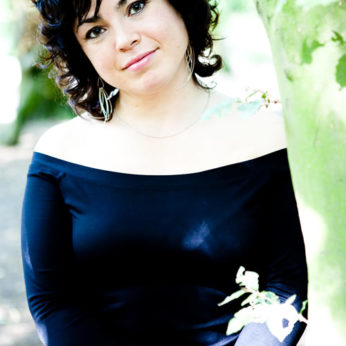Composer: Viktor Ullmann (b. 1898 - d. 1944)
Performance date: 29/06/2010
Venue: Bantry Library
Composition Year: 1944
Duration: 00:08:06
Recording Engineer: Anton Timoney, RTÉ lyric fm
Instrumentation: S-solo, pf
Instrumentation Category:Duo
Artists:
Katya Apekisheva -
[piano]
Charlotte Riedijk -
[soprano]

Viktor
Ullmann is perhaps the most impressive and the most extraordinary of the
composers who were sent to Terezin. Before the War he had like many composers
earned his living working in opera houses both as a conductor under Zemlinsky
and as fully-fledged Intendant, which turned out to be very good preparation
for working in Terezin where he was given enormous responsibilities organising
the camp’s musical activities. These had begun as an underground activity but
the Nazis quickly realised the advantage of diverting the inmates through
performances created and organised by the inmates themselves with the useful
additional propaganda advantage of deceiving the outside world about how the
Jews were treated in the camps.
Ullmann composed twenty three works while in Terezin and wrote a
remarkable essay Goethe and
Ghetto, where he describes
the challenge of composing and producing music under such conditions. For him
art was central to the spiritual and ethical development of humanity and he
confronted the desolate landscape of Terezin in spiritual and aesthetic terms.
As he explained it, earlier,
when one did not feel the impact and burden of material life because
comfort—this magic of civilization—suppressed it, it was easy to create
beautiful forms. Yet, in Theresienstadt, where in daily life one has to
overcome matter through form, where everything musical stands in direct
contrast to the surroundings: here is a true school for masters.
This collection of six songs begins with three composed in
Terezin. It is probably not fanciful to make a connection between the little
birch tree (Berjoskele) and of the first song and the Polish village of
Birkenau, which also means birch tree. The village of Birkenau was demolished
to make way for the extermination camp at Auschwitz Birkenau.
Copyright © 2024 West Cork Music. All rights reserved.
Designed and developed by Matrix Internet